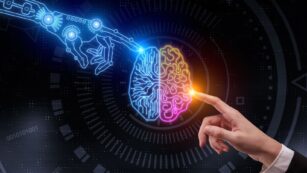
As the world spins faster into the future, technology trends are not just evolving; they’re revolutionizing industries at an unprecedented pace. From AI-driven analytics to quantum computing, the next decade promises to usher in a new era of innovation. These advancements are set to reshape the way we live, work, and interact with our surroundings.
Future Technology Trends
Artificial Intelligence Advancements
 Artificial Intelligence (AI) continues to lead as one of the most transformative future technology trends. Experts predict AI will drive innovations across multiple sectors, including healthcare, automotive, finance, and customer service. Moves toward more sophisticated neural networks improve prediction accuracy and decision-making capabilities, even in complex environments. Notably, AI advancements like natural language processing and machine learning algorithms allow businesses to optimize operations and enhance user experiences. These technologies, if integrated properly, promise significant efficiency boosts and cost savings.
Artificial Intelligence (AI) continues to lead as one of the most transformative future technology trends. Experts predict AI will drive innovations across multiple sectors, including healthcare, automotive, finance, and customer service. Moves toward more sophisticated neural networks improve prediction accuracy and decision-making capabilities, even in complex environments. Notably, AI advancements like natural language processing and machine learning algorithms allow businesses to optimize operations and enhance user experiences. These technologies, if integrated properly, promise significant efficiency boosts and cost savings.
Quantum Computing Breakthroughs
Quantum computing represents a substantial leap forward in computation power, tackling problems infeasible for classical computers. This technology leverages the principles of quantum mechanics to process information at speeds unmatchable by traditional systems. Industries such as cryptography, material science, and pharmaceuticals stand to benefit immensely from quantum computing breakthroughs. Researchers have achieved quantum supremacy, demonstrating that quantum computers can perform specific tasks—like calculating chemical compound structures—faster than standard computers. The ripple effect could lead to more rapid drug development processes, more secure data encryption, and solutions to complex logistical challenges.
Impact on Society
Changes in Employment Patterns
 Emerging technologies profoundly alter employment landscapes, reshaping job roles and demands across industries. The integration of Artificial Intelligence (AI) and automation significantly reduces the need for routine, manual tasks, shifting the emphasis to more strategic and creative roles. This shift fosters a demand for skills in AI management, machine learning oversight, and data analysis. For instance, AI’s application in customer service generates roles for AI trainers and overseers, who ensure AI systems operate effectively within ethical guidelines. Similarly, advancements in Quantum Computing are creating new positions in quantum algorithm programming and quantum hardware engineering. It becomes essential, therefore, for individuals to adapt to these changing employment patterns by acquiring new skills and qualifications pertinent to emerging technologies.
Emerging technologies profoundly alter employment landscapes, reshaping job roles and demands across industries. The integration of Artificial Intelligence (AI) and automation significantly reduces the need for routine, manual tasks, shifting the emphasis to more strategic and creative roles. This shift fosters a demand for skills in AI management, machine learning oversight, and data analysis. For instance, AI’s application in customer service generates roles for AI trainers and overseers, who ensure AI systems operate effectively within ethical guidelines. Similarly, advancements in Quantum Computing are creating new positions in quantum algorithm programming and quantum hardware engineering. It becomes essential, therefore, for individuals to adapt to these changing employment patterns by acquiring new skills and qualifications pertinent to emerging technologies.
Effects on Privacy and Security
As technology advances, challenges related to privacy and security increase. The proliferation of connected devices and the expansion of digital networks expose societal vulnerabilities that malicious entities might exploit. AI and Quantum Computing enhance the sophistication of security systems but also introduce complex privacy issues. AI-driven applications require vast amounts of data, raising concerns about surveillance and personal data misuse. For instance, while AI can optimize data security management and threat detection, it also has the potential to be used for invasive data harvesting practices. Quantum Computing poses a unique threat to encryption models currently protecting global financial markets and confidential communication networks. It’s imperative for businesses to develop robust security measures that keep pace with these technological advances, ensuring public trust and system integrity.
Industry Transformations
 In the context of future technology trends, Industry Transformations are pivotal, initiating profound shifts in how businesses operate and societies function. Technologies like Artificial Intelligence and Quantum Computing aren’t merely enhancing existing processes; they’re redefining industries across the board. Key sectors such as healthcare, finance, and manufacturing are witnessing the integration of AI to streamline operations and improve decision-making. Moreover, Quantum Computing offers solutions to previously insurmountable problems, revolutionizing fields like drug development and financial modeling.
In the context of future technology trends, Industry Transformations are pivotal, initiating profound shifts in how businesses operate and societies function. Technologies like Artificial Intelligence and Quantum Computing aren’t merely enhancing existing processes; they’re redefining industries across the board. Key sectors such as healthcare, finance, and manufacturing are witnessing the integration of AI to streamline operations and improve decision-making. Moreover, Quantum Computing offers solutions to previously insurmountable problems, revolutionizing fields like drug development and financial modeling.
As these technologies continue to evolve, industries must adapt swiftly to harness their full potential and mitigate accompanying challenges, like cybersecurity risks and ethical concerns. This adaptation ensures not only competitiveness but also the ability to meet changing consumer demands and regulatory requirements effectively.
Sustainable Development
As industries continue to harness the transformative power of AI and Quantum Computing they’re not just solving current challenges but also paving the way for sustainable development. These technologies offer a glimpse into a future where efficiency and security converge to foster growth. By embracing these advancements businesses and societies can achieve unprecedented levels of innovation and productivity. It’s crucial that stakeholders across all sectors remain agile adapting to technological shifts to build a resilient and forward-thinking world.


